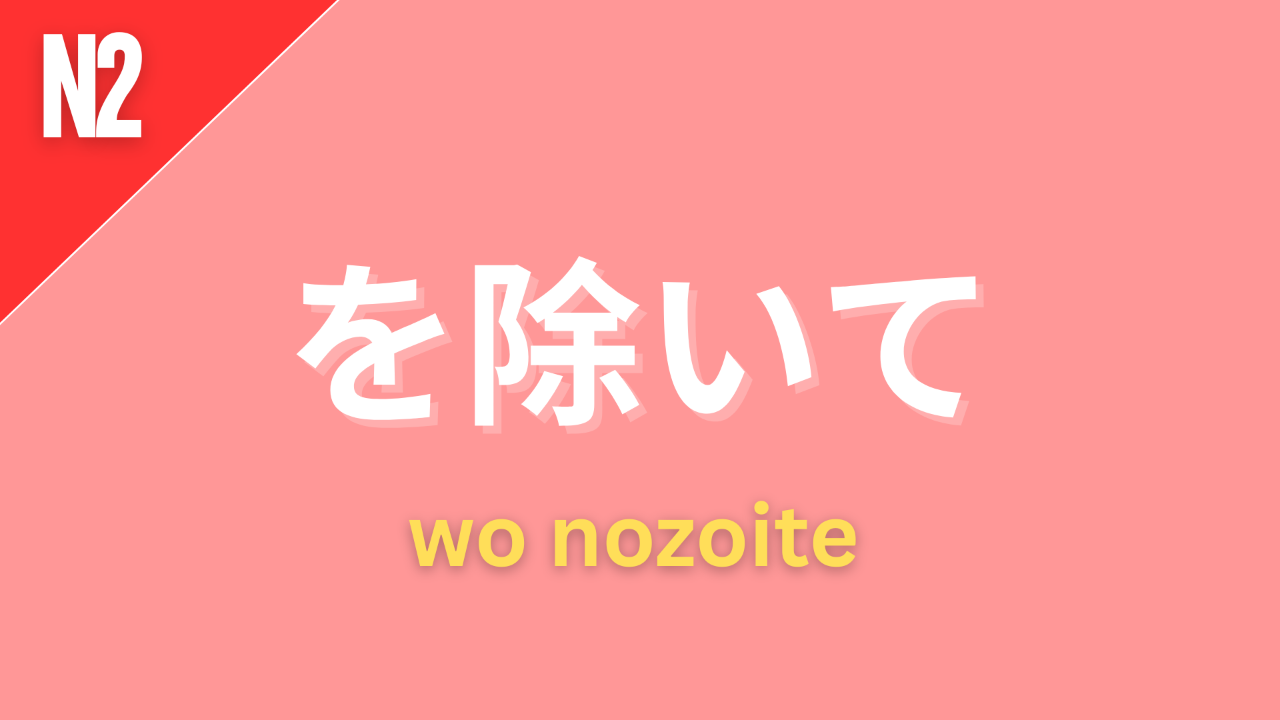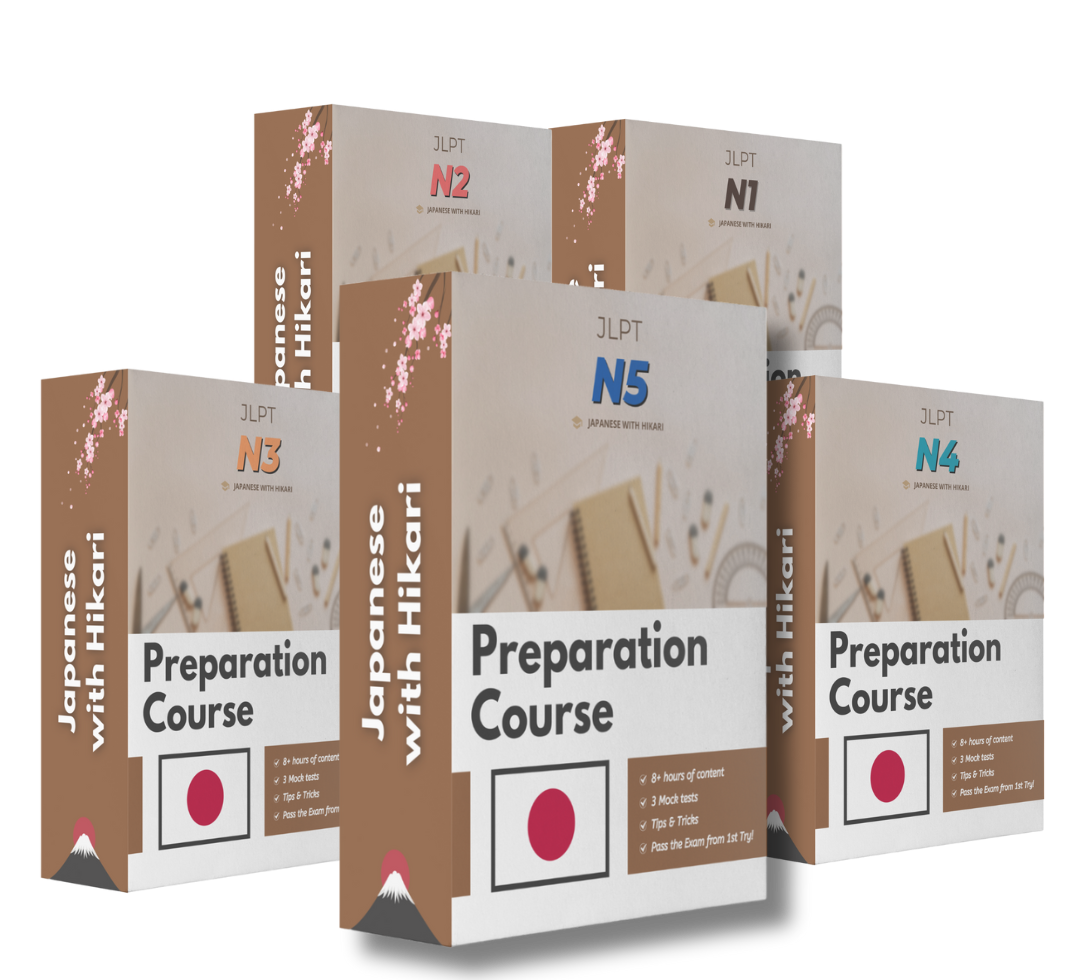JLPT N2 - Grammar 🌟 を除いて wonozoite

Imagine your friend asks after work, “When are you free to grab dinner?”
You want to say, “I’m free every day except Monday.”
Of course, you could list all the days: Tuesday, Wednesday, Thursday, and Friday, but there’s a much handier way to say it in Japanese.
That’s where を除いて (wo nozoite) comes in!
In Japanese, を除いて is a formal but super useful way to say “except / excluding / with the exception of.”
Let’s dive in and see how it works!



以外 (igai) → also means “except / other than”
月曜日以外は 毎日会社に行きます。
getsuyoubi igai ha mainichi kaisha ni ikimasu
I go to work every day except Monday.
💡 Tip:
を除いて and 以外 can often be used interchangeably.
を除いて = slightly more formal, often used in writing, announcements, or official statements.
以外 = more common in daily conversation.
除けば (nozokeba) → The conditional form of 除く, meaning “if we exclude ~ / with the exception of ~.”
この一つのミスを除けば、彼の仕事は完璧だった。
kono hitotsu no misu wo nozokeba, kare no shigoto ha kanpeki datta
If we exclude this one mistake, his work was perfect.
💡 Tip:
除けば is a formal/logical expression, often used in news reports, written texts, or explanatory contexts.
💡 Note on Structure:
The phrase を除いて is made of two parts:
を → the object marker particle
除いて → the te-form of the verb 除く, meaning “to exclude / to remove.”
月曜日を除いて、毎日会社に行きます。
getsuyoubi wo nozoite, mainichi kaisha ni ikimasu
Except for Monday, I go to the office every day.
彼を除いて、全員が出席しました。
kare wo nozoite, zen-in ga shusseki shimashita
Everyone attended, with the exception of him.
日本を除いて、ほとんどの国でそのアプリが使えます。
nihon wo nozoite, hotondo no kuni de sono apuri ga tsukaemasu
With the exception of Japan, that app can be used in most countries.
彼女を除いて、全員がそのひみつを知っていた。
kanojo wo nozoite, zen’in ga sono himitsu o shitte ita
Everyone knew the secret, except her.
この地域を除いて、台風の被害は広がらなかった。
kono chiiki wo nozoite, taifuu no higai ha hirogaranakatta
The typhoon damage did not spread, excluding this area.
土日祝日を除いて、あの郵便局は毎日営業しています。
do-nichi shukujitsu wo nozoite, ano yuubinkyoku ha mainichi eigyou shite imasu
Except for weekends and holidays, that post office is open every day.
子どもを除いて、この映画はだれでも見られます。
kodomo wo nozoite, kono eiga ha dare demo miraremasu
With the exception of children, anyone can watch this movie.

- Grammar Point: を除いて (wo nozoite)
- JLPT Level: N2
- Meaning: Except, excluding, with the exception of
- Quick Explanation: を除いて attaches to a noun and is used when you want to exclude something from a group or category.
It’s often found in formal speech, writing, news, or business contexts.
So that’s how we use を除いて (wo nozoite) in Japanese!
It’s a bit more formal; you’ll notice it in news, signs, and official announcements all the time. It’s also perfect when you want to sound logical and smart.
Now it’s your turn; try making your own sentences with を除いて and level up your Japanese to N2 style!
Your Sensei,
Hikari 👩🏻🏫
Get Hikari's JLPT Mock Exams & Preparation Lessons!
Whether you are studying to pass the JLPT or looking for a challenge in your learning journey, these courses are perfect for you!
Join my ニュースレター Newsletter 📩
You can expect an email from me once a week about Japanese culture.
Don't worry, your information will not be shared.
We hate SPAM. We will never sell your information, for any reason.





